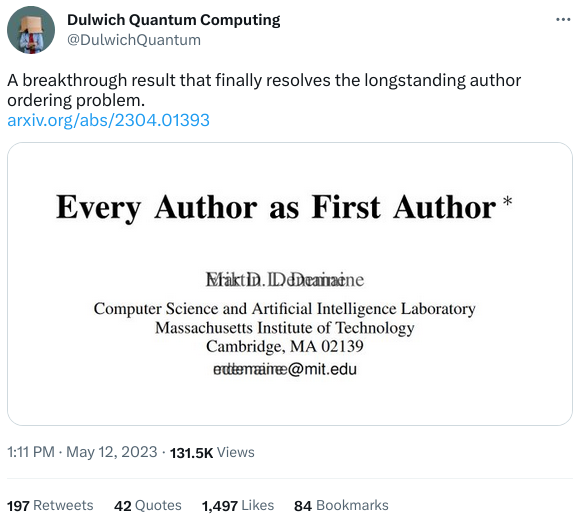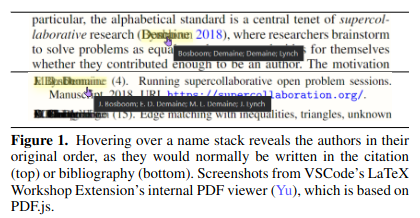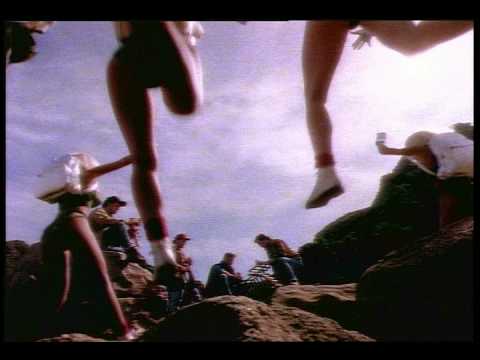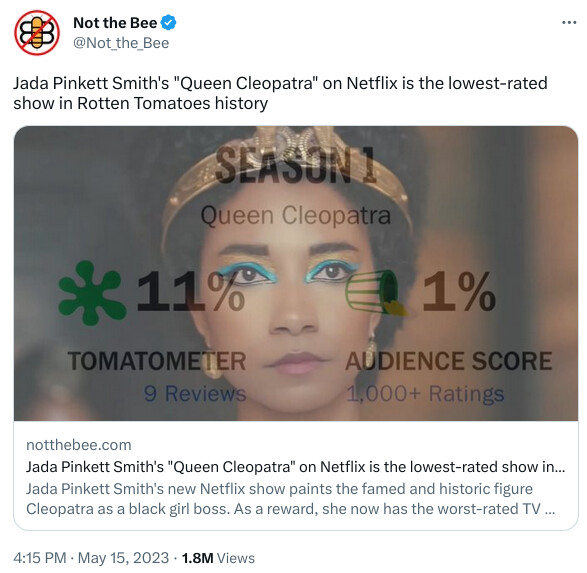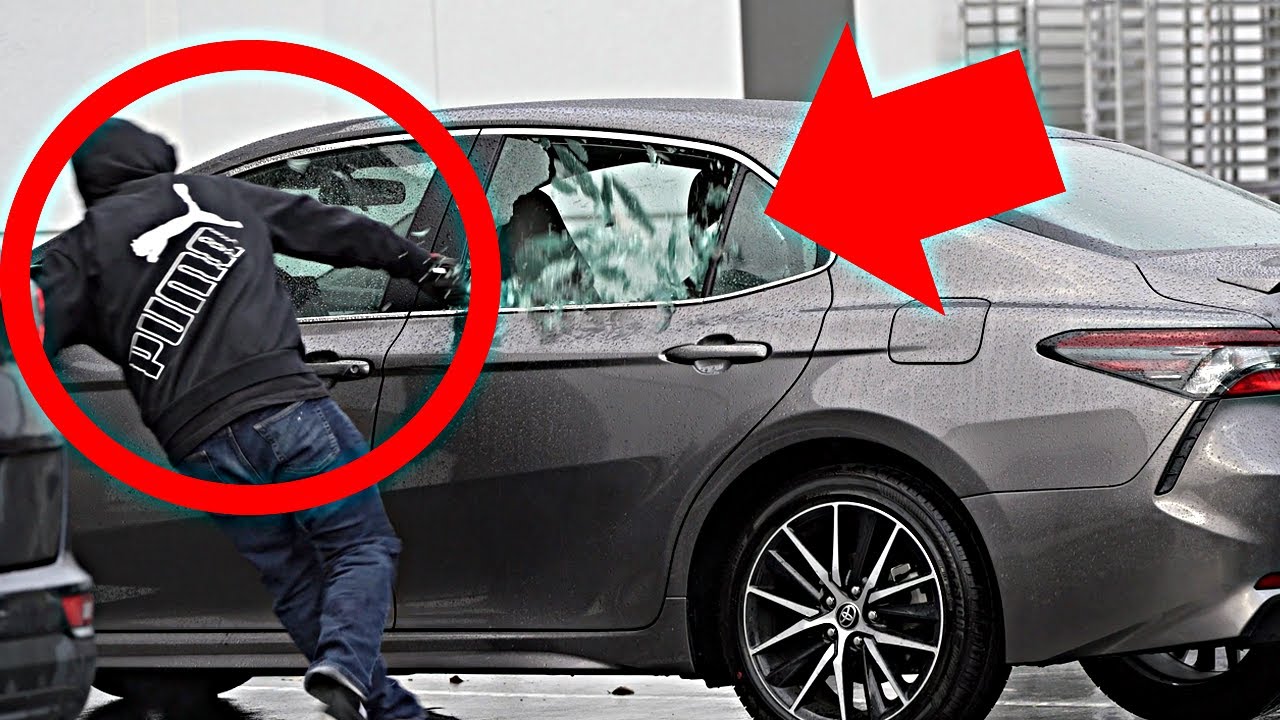Abstract
We propose a new standard for writing author names on papers and in bibliographies, which places every author as a first author — superimposed. This approach enables authors to write papers as true equals, without any advantage given to whoever’s name happens to come first alphabetically (for example). We develop the technology for implementing this standard in LaTeX, BibTeX, and HTML; show several examples; and discuss further advantages.
If it were me, I would file a complaint with New York Consumer protections, and also take it to small claims court to try to be made whole with additional costs of booking so close to date of event (damages). Consider flying out to Texas for your 10th anniversary!
Bud Light: “Take that, you pithecanthropoid cis-het ‘salt of the Earth’ customers”!
Miller Lite: “Hold my beer.”
With extra added obscenity—how ‘transgressive’!
“Free” big screen television with a separate screen that continuously plays ads, plus a camera and microphone so that “in Soviet America, television watches you.”
Excellent
When will Sam Adams announce its new label celebrating gun bans and confiscatory taxation?
Because that’s what the founders intended you see.
Is the beer company about to announce a stupid ad campaign?
Or a plebiscite in Alaska to rejoin Russia. It might actually fly.
By the way I do believe Putin had a Siberian land grant program of sorts recently targeting young people.
Minneapolis, Minnesota May, 2023
South African Parliament, Pretoria, South Africa May, 2016
They used to say in South Africa, “What’s the difference between Zimbabwe and South Africa? About ten years.”
What’s the difference between South Africa and Minneapolis? About seven years.
From one shocked observer at Forbes:
However, the show has done something I didn’t think was even possible. It has not just the lowest audience score in Netflix history, it has essentially the lowest audience score possible on Rotten Tomatoes, a 1%. Not a 10%, a 1%. (Update: It just ticked up to 2%. Still an unprecedented low.)
There aren’t many critic reviews in, but those are low as well, with the show sitting at a 13%. But those audience scores? I’ve never seen anything like this. Not with bad shows. Not with politically controversial shows prone to review bombing. Never this bad, not in Netflix history. Honesty, I think not even in TV history, at least with this many reviews in (over a thousand).
Lake Wobegon
Having lived in Minneapolis, I’d really like to take Garrison Keillor and tie him up and throw him into that Democratic party meeting.
The Imbecility… The Imbecility…
…of our religious leaders in not ensuring that every young man, by the age of 18, has built a homestead that he owns free and clear of debt. There is a special place in Hell for them.
Where’s Mark Rober when you need him?
Wait, wait! THAT scam was already done - for real - by no less than BILLY CLINTON.
?Are the Dems now down to copying old tricks.
Abstract
There is growing scientific evidence that humanity faces a number of threats that jeopardize its future. Public perceptions of these threats, both their risks and reactions to them, are important in determining how humanity confronts and addresses the threats. This study investigated the perceived probability of threats to humanity and different responses to them (nihilism, fundamentalism and activism), in four Western nations: the US, UK, Canada and Australia. Overall, a majority (54%) rated the risk of our way of life ending within the next 100 years at 50% or greater, and a quarter (24%) rated the risk of humans being wiped out at 50% or greater. The responses were relatively uniform across countries, age groups, gender and education level, although statistically significant differences exist. Almost 80% agreed “we need to transform our worldview and way of life if we are to create a better future for the world” (activism). About a half agreed that “the world’s future looks grim so we have to focus on looking after ourselves and those we love” (nihilism), and over a third that “we are facing a final conflict between good and evil in the world” (fundamentalism). The findings offer insight into the willingness of humanity to respond to the challenges identified by scientists and warrant increased consideration in scientific and political debate.
Randle, M. J. & Eckersley, R. (2015). Public perceptions of future threats to humanity and different societal
responses: a cross-national study. Futures, 72 4-16.
ttps://ro.uow.edu.au/cgi/viewcontent.cgi?article=1742&context=buspapers
